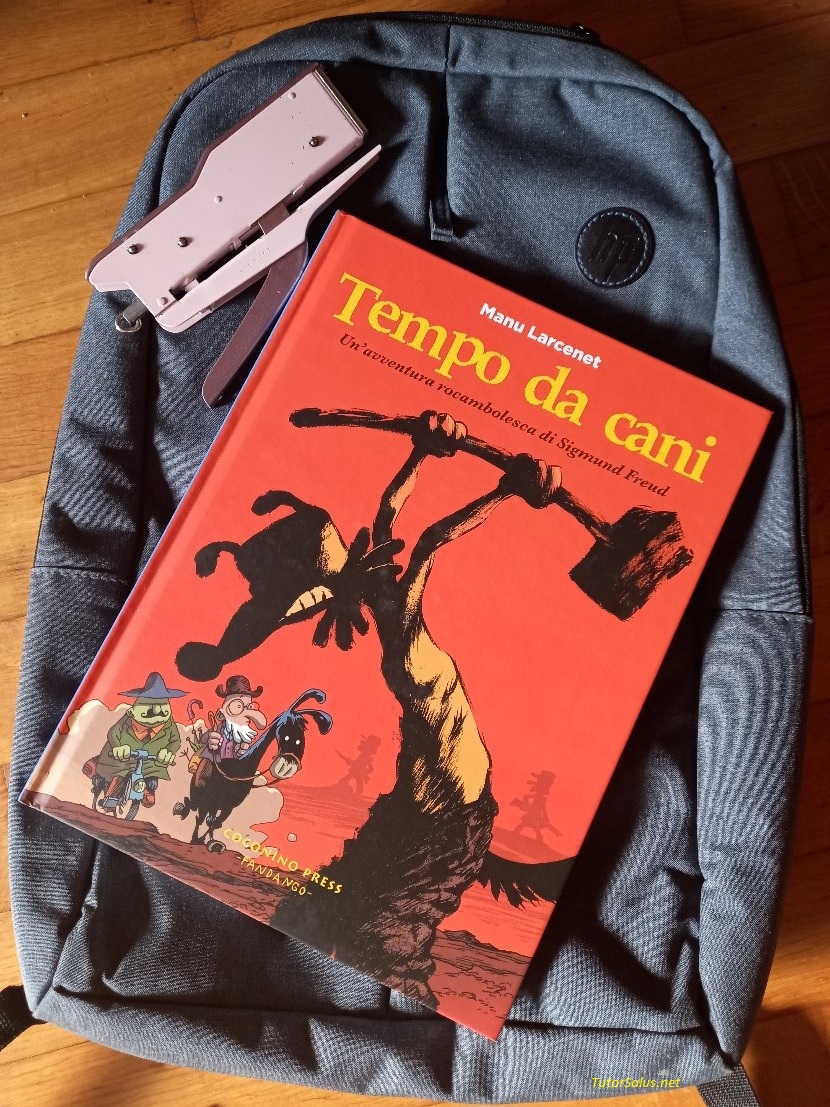In time.

Not so recent[1] – it is from 2018 – but really up-to-date and enlightening : where the integrity of Freud comes once more in your aid, right where Jacques Lacan gleefully smiled to the undefendable ones, men and women not interested to the truth. Will they really exist ?
As soon there is room for the dark, the unspeakable and the unbearable, to the ‘time’ you can make any vault, tactful or voluptuous, coloured or grey, and finally come back to the starting point, ready for the next round of dancing : it is not the most reassuring ‘time’ but at least is the ‘time’ of an object, something you can – again and again- twist or somewhere support, caress, even gaze.
It remains that Manu Larcent, shrewd author of this unexpectde graphic novel, doesn’t read in Freud the shaman put forward by Jacques Lacan[2] : therefore we thank him, and first of all because he could sweep away – so nicely - that sly stink which many reduced to chains, and moreover uselessly tangled but somehow comforted, come on.
In short, the fetish to catch in order to escape the depressing imputability would be again, and still, ‘the soul of the winner’.
The time of a thought getting to knowledge as an experience leaving our unconscious, does serve and usefully one's own analytical work, and others : skilfully masked – here is Igor Tuveri[3] and recognizable! – plays the main role of the intelligent servant, who no one indeed can do without in real life.
It is ‘I’, but English language does keep ‘AI’[4]. Curious obstinacy, huh ?
Marina Bilotta Membretti, Cernusco sul Naviglio 5 luglio 2022
[1] ‘Tempo da cani. Un’avventura rocambolesca di Sigmund Freud’, di Manu Larcent - ‘Coconino Press – Fandango’ 2018 (titolo originale : ‘Une aventure rocambolesque de Sigmund Freud – Le temps de chien’/ ‘DARGAUD’ 2002)
[2] ‘La scienza e la verità. Lezione di apertura del Seminario 1965-1966’ in ‘Jacques Lacan. Scritti’, a cura di Giacomo B. Contri – Bibliot. Einaudi (2002) Vol. II, p.873 e pp.875-876
[3] Igor Tuveri, co-founder (2000) with Carlo Barbieri of the publishing company ‘Coconino Press Srl’.
[4] ‘Artificial Intelligence’, o ‘A.I.’ : there are those who would like it to be replaced to our human imputability of satisfaction and unsatisfaction.